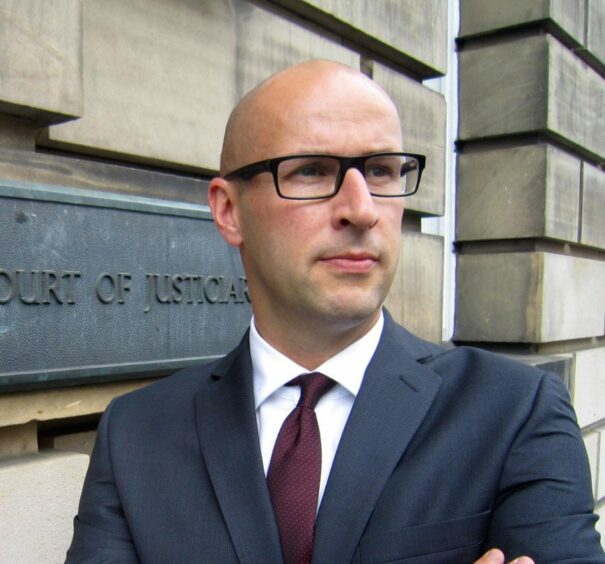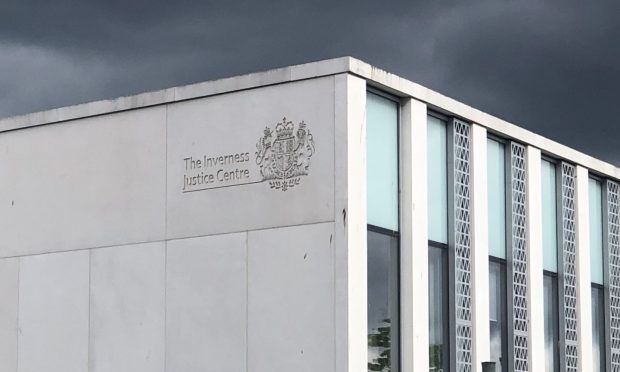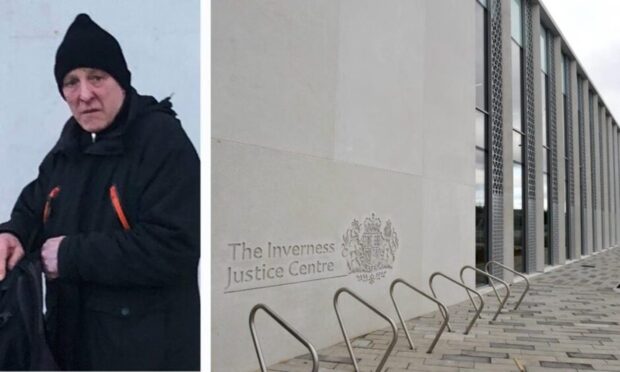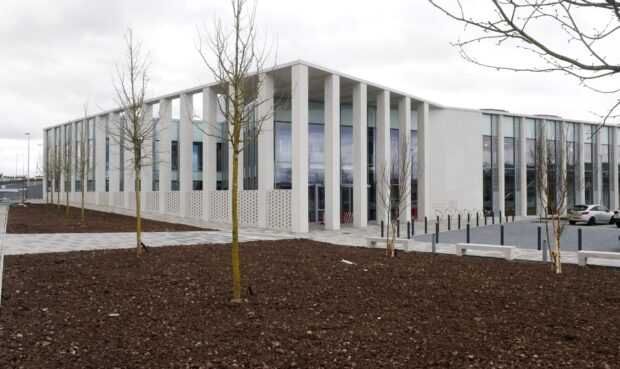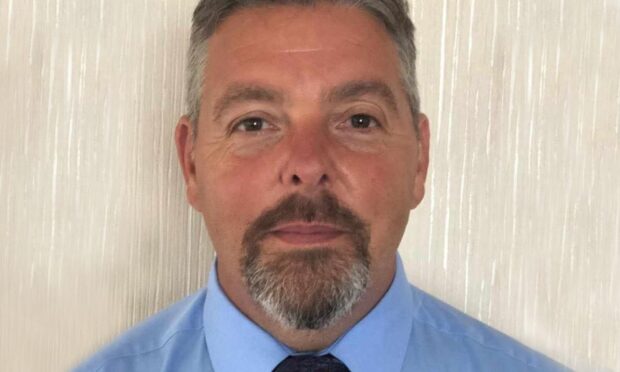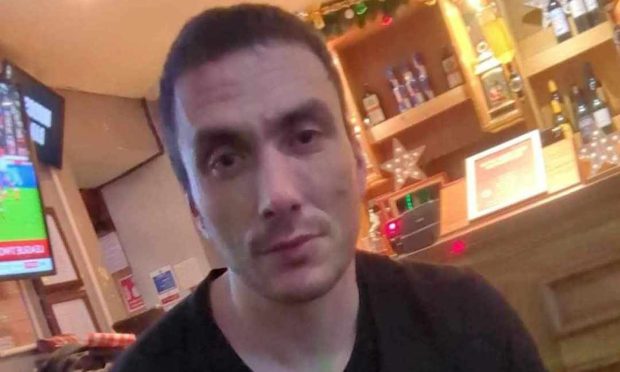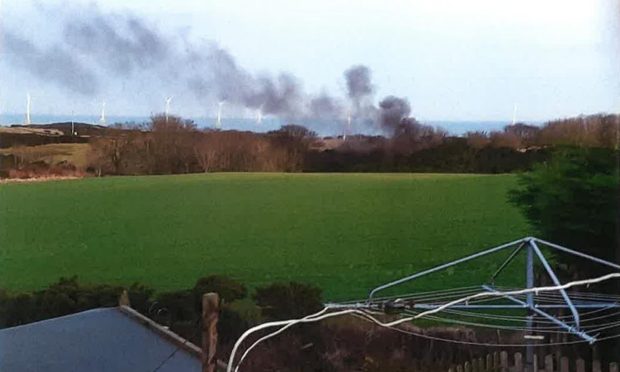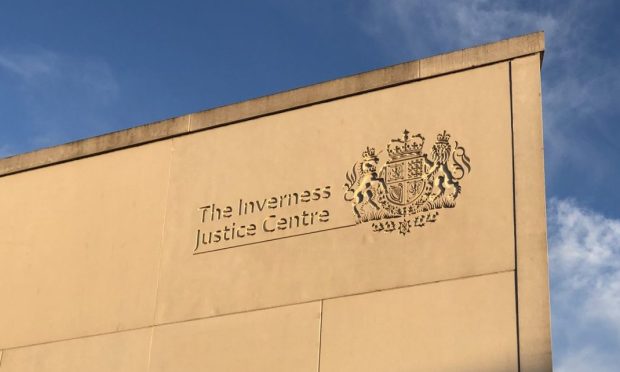Long delays in court cases – resulting in witnesses being unable to remember incidents and alleged victims giving up on justice – are being caused in part by funding issues creating a shortage of lawyers, it has been claimed.
Alleged victims of crime are waiting up to four years for serious criminal cases to go to trial, with some losing hope and disengaging before their trials even begin, the Aberdeen Bar Association has warned.
Lawyers in the north-east said “excessive” delays are having a “severe impact” on cases and victim support groups have lost confidence in the criminal justice system.
A shortage of defence lawyers is pausing proceedings and causing “major distress” for those already badly affected by allegations of the worst kinds of offences.
It’s claimed defence law firms are struggling to recruit new talent because they’re better off working in the public sector as prosecutors.
And legal professionals also blamed the “radical reduction” in staffing on “stagnated” rates of legal aid funding from the government.
‘Particularly severe’ in Aberdeen
Solicitor Ian Woodward-Nutt, president of the Aberdeen Bar Association, told the Press and Journal that the situation is “particularly severe” in Aberdeen.
He said the city’s courts face some of Scotland’s longest delays, with allegations of sexual or violent offences several years ago only expected to reach trial in the summer of 2023.
“It is now sadly commonplace for trials to take place relative to incidents that have taken place three or even four years ago,” Mr Woodward-Nutt commented.
“For some complainers of crime, these delays lead to them simply withdrawing from the criminal justice system,” he added.
The Aberdeen Bar Association president explained that the longer the delay in bringing cases to trial, the harder it is for prosecution witnesses to recollect events.
He said such situations mean a greater likelihood of an accused being found not guilty.
And Mr Woodward-Nutt criticised the Scottish Government, which he claimed has done “little or nothing” to increase funding for criminal defence lawyers.
He explained: “Rates for Criminal Legal Aid have stagnated for over 20 years.
‘Log-jam’ of ageing criminal cases
“Defence firms are unable to recruit young lawyers, many of whom have left for better-paid jobs as prosecutors.
“This has resulted in a radical reduction in the size of the criminal bar at a time when more trials are taking place in an attempt to get caught up on the ‘log-jam’ of ageing criminal cases.
“Criminal cases are requiring to be adjourned at all levels in the criminal justice system, even in some of the most serious cases in the High Court.
“This is serving to significantly increase delays and distress for victims of serious crime.”
The Scottish Legal Aid Board told the Press and Journal that there is a 5% fee increase coming into effect on Friday April 1 as part of a two-year uplift of 10.25%.
Backlog ‘exacerbated’ by pandemic
And a Scottish Government spokesman, who also said the court backlog has been “exacerbated” by Covid-19, explained how the executive is responding to the crisis.
He said: “In 2021/22 we provided £50 million of funding for justice recovery.
“We are providing a further £53.2 million in 2022/23 and victims’ needs have been prioritised in the newly published vision for justice strategy.
“We are also committed to supporting the legal aid sector, and have invested £20 million in legal aid since March 2021 – including establishing a £1 million fund to support new legal aid trainees, increasing the capacity and capability of the profession.”
Time to trials more than doubled
But figures released by the Scottish Courts and Tribunals Service (SCTS) revealed just how much the country’s courts are struggling to keep up with demand.
Data showed the average time between the accused entering a plea and the evidence led trial beginning has more than doubled since the pandemic.
Alleged victims and those accused of committing crimes against them will have to wait as long as just over a year for their cases to be heard.
Ongoing Covid recovery programme
David Fraser, SCTS executive director of court operations, said: “Our court buildings continue to operate in accordance with guidance from Public Health Scotland to safeguard our staff, judiciary and court users.
“The collaboration across the judiciary, justice organisations, the legal profession and the third sector is helping to effectively manage court business, including the ongoing delivery of the recovery programme.”
In January, the Scottish Government’s Victims Taskforce published papers which warned that victims are withdrawing from court cases or choosing not to report to the police.
It said: “They feel like they are unable to move forward with their lives until the trial date, and are often re-traumatised by holding onto their experiences to ensure it is fresh in their minds for giving evidence.”
Abusers still controlling victims
A Scottish Women’s Aid worker told the taskforce that the length of time clients have waited has left many feeling that their abusers are still controlling their lives.
And a Victim Support Scotland service user told their story of how their abuser’s court appearances kept getting “pushed and pushed”.
They said: “The last court case my abuser had to attend was pushed, they were free and came home.
“Every week I had that anxiety, hearing keys rattling, thinking they were coming back that day.”
Rape trial postponed
Solicitor Stuart Beveridge, a director at Grant Smith Law Practice, said he had a rape case at the High Court postponed recently due to a shortage of advocates.
He told the Press and Journal: “An advocate will get stuck in a trial and can’t get involved in the next one down the line.
“What happens then is you contact the faculty of advocates and ask for a list of available counsel.
“So we did that, and there was nobody.
“For the first time in the 28 years I’ve been doing this job they turned around and said ‘sorry, there’s nobody available’.
“There just aren’t enough lawyers.”
Mr Beveridge suggested a reason for that was due to defence agents leaving firms to become fiscal deputes for more money, and also an increase in the number of new sheriffs.
The solicitor said the rape case has been outstanding for several years and delays are having an impact on all of those involved in the trial.
“These are big, serious charges and very stressful for everybody involved, so quite horrible for witnesses having the case put off and also quite horrible for my client who is just desperate to get into court and clear his name,” he explained.
Horror stories
Mr Beveridge added: “If you want to know about horror stories, I’ve got a guy who’s been on remand since September 2020 and his trial isn’t until June this year.
“He’s been remanded right through the whole thing. That’s a rape case as well.”
Mr Beveridge also represents clients at Banff Sheriff Court which is currently handling his oldest case that dates back four years to 2018.
“This is stuff we just can’t get finished,” he said, and added: “There are witnesses coming to court and saying ‘I can’t remember’ just because the case is so old”.
The solicitor called for a balance between the interests of justice and fairness for the accused to have something hanging over them for years.
He said: “They come to court, ready to go to trial and it can’t go ahead for whatever reason. The courts are trying to catch up, so they’re running as many trials as they can.
“Criminal defence firms are being asked to do more work with fewer people. They need more lawyers. That’s the problem.”

